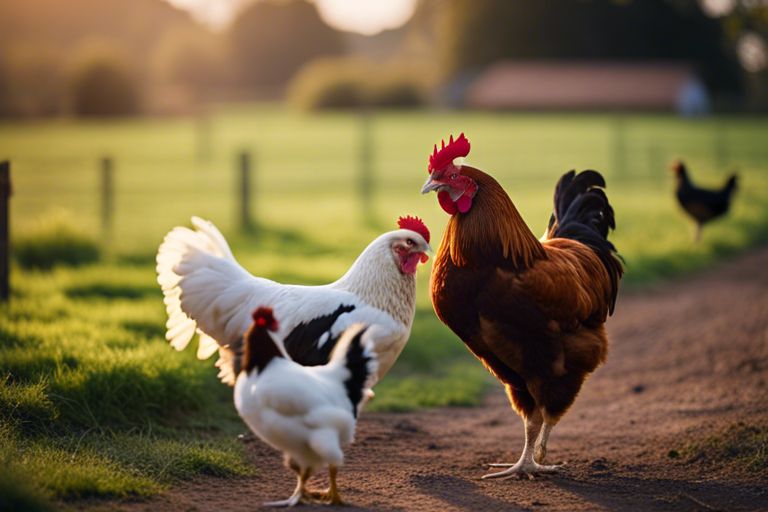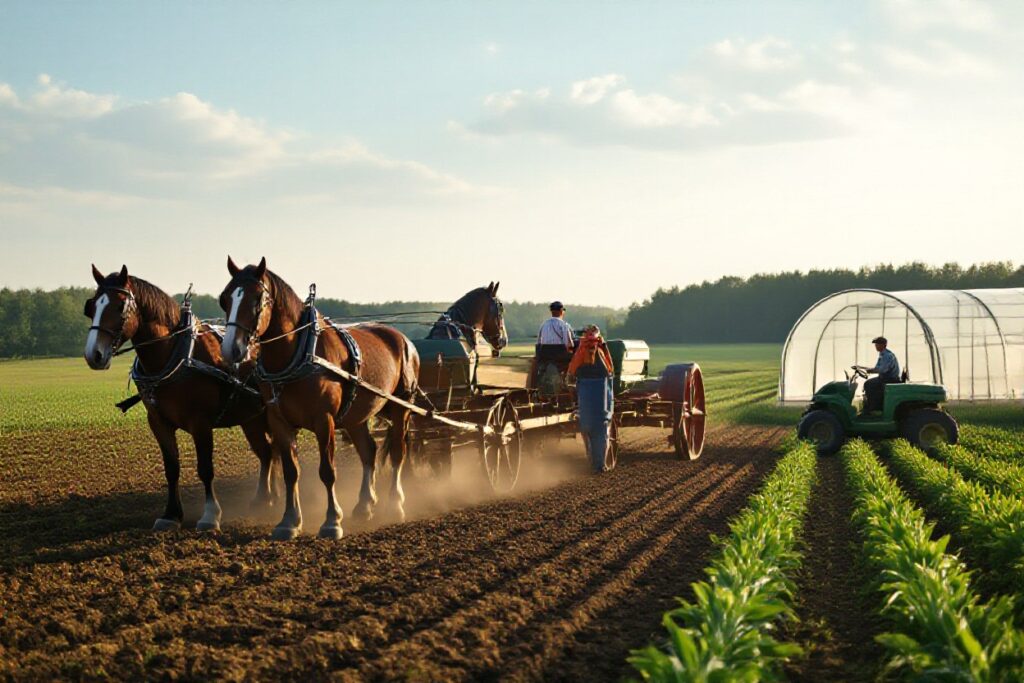There’s a wide variety of chicken breeds available, each with its own unique characteristics that can make a big difference on your farm. When deciding on the right breed for your needs, factors such as egg production, meat quality, temperament, and climate tolerance should all be taken into consideration. In this comprehensive guide, we will walk you through the process of selecting the perfect chicken breeds for your farm, ensuring a successful and productive poultry operation.
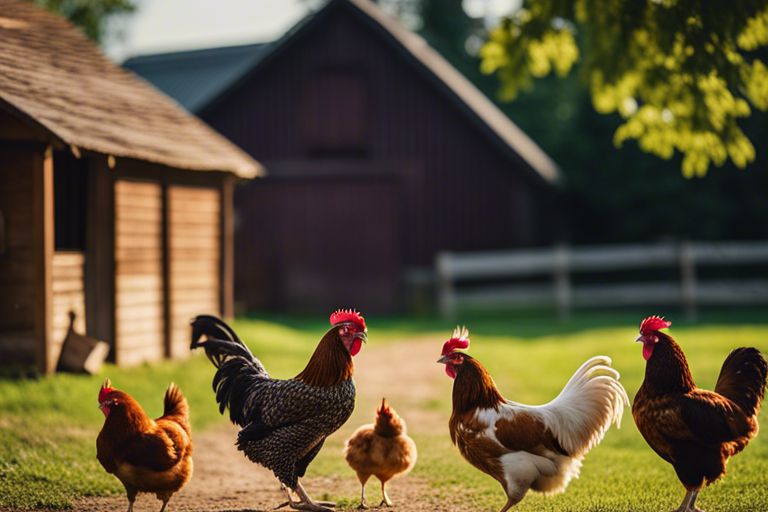
Factors to Consider When Choosing Chicken Breeds
A crucial step in starting your chicken farm is selecting the right chicken breeds. Several factors come into play when choosing the breeds that will thrive on your farm. Understanding these factors will help you make an informed decision that suits your needs best.
Climate Adaptability
Little is as vital as considering the climate adaptability of chicken breeds when making your selection. Some breeds are better suited to colder environments, while others thrive in warmer climates. It is crucial to choose breeds that can withstand the weather conditions in your area to ensure their health and productivity.
Egg Production Rates
Little is more critical than egg production rates when selecting chicken breeds for your farm. Different breeds have varying levels of egg-laying capabilities, so it is crucial to consider how many eggs you need and choose breeds that can meet your requirements.
Chicken breeds like Leghorns and Rhode Island Reds are known for their high egg production rates, making them popular choices for commercial egg farms. On the other hand, dual-purpose breeds like Orpingtons may not lay as many eggs but are valued for their meat quality.
Temperament and Behavior
With chickens being social animals, their temperament and behavior play a crucial role in how they interact with each other and with humans. Some breeds are docile and friendly, while others can be more aggressive or flighty. Considering the temperament of the breeds you choose is crucial for maintaining a harmonious flock and ensuring ease of handling.
Choosing breeds with a friendly temperament is beneficial if you have children or plan to interact closely with your chickens. Calm breeds like Silkies and Orpingtons are more suitable for small farms where human interaction is frequent.
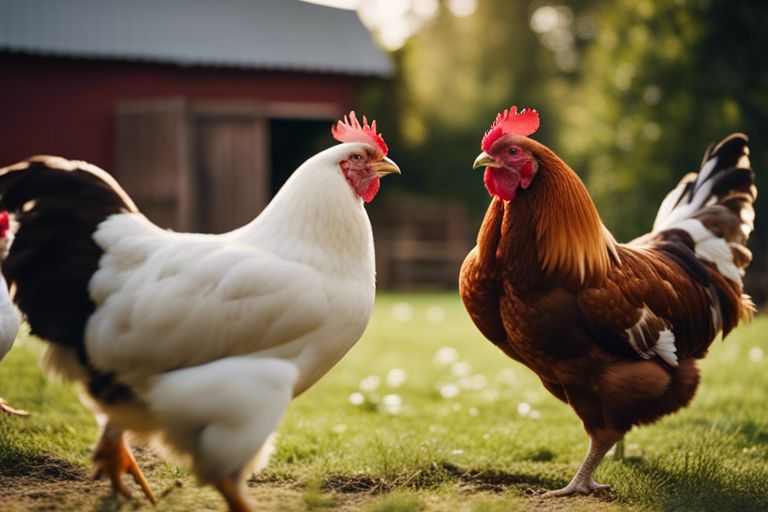
Essential Tips for First-Time Chicken Farmers
If you are considering raising chickens for the first time, there are a few crucial tips to keep in mind to ensure a successful and enjoyable experience. Researching different chicken breeds, consulting with local farmers and experts, and preparing a suitable coop are key steps to take before bringing your feathered friends home. Make sure to invest time and effort in understanding the specific needs of your chosen chicken breeds and the best practices for their care.
Researching Chicken Breed Profiles
For first-time chicken farmers, it is crucial to research various chicken breed profiles to find the ones that best suit your needs and environment. Consider factors such as egg production, temperament, climate adaptability, and space requirements when selecting the right breeds for your farm. Make informed decisions based on your research to ensure the health and well-being of your chickens.
Consulting with Local Farmers and Experts
Assuming that you are new to chicken farming, it is highly recommended to seek advice from local farmers and experts in your area. They can provide valuable insights and practical tips based on their experience, helping you avoid common pitfalls and make informed decisions. Local knowledge can be invaluable when it comes to raising chickens successfully in your specific location.
To benefit from the expertise of local farmers and experts, consider joining poultry associations or attending workshops and seminars in your area. Building a network of experienced individuals can be a valuable resource as you initiate on your chicken farming journey.
How to Balance Egg Layers with Meat Producers
Once again, when choosing the right chicken breeds for your farm, it’s necessary to find a balance between egg layers and meat producers. By considering both aspects, you can maximize the productivity and efficiency of your flock.
Evaluating Your Market and Consumption Needs
Some key factors to consider when balancing egg layers with meat producers are your market demand and consumption needs. Are you producing more for personal consumption or to sell in the local market? Understanding the requirements of your target audience will help you determine the right mix of breeds for your farm.
Creating a Diverse Flock for Sustainability
Any sustainable chicken farming operation should aim to create a diverse flock that includes both egg layers and meat producers. This diversity not only offers flexibility in terms of production but also provides resilience against unforeseen circumstances such as disease outbreaks or market fluctuations. By incorporating a variety of breeds, you can ensure a steady supply of both eggs and meat for your farm.
Layers
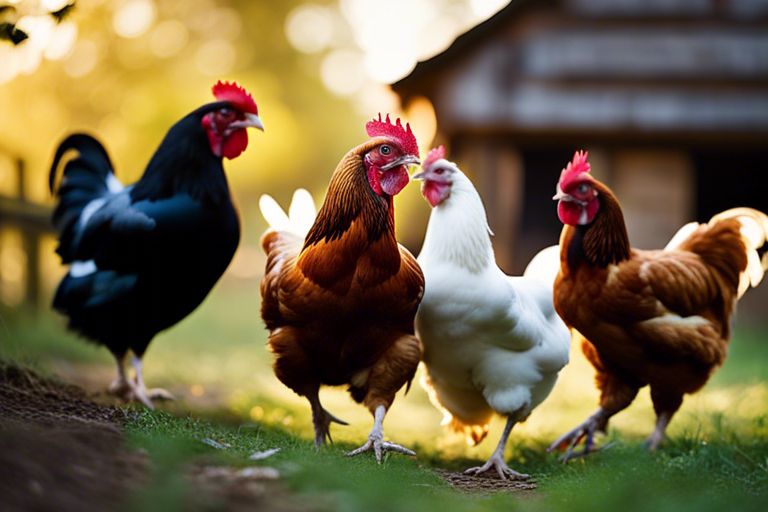
Long-Term Management and Care of Your Chicken Breeds
Housing and Space Requirements
All chicken breeds require adequate housing and space to thrive. The housing should provide protection from predators, shelter from the elements, and enough space for the chickens to move around comfortably. Each chicken should have at least 2-3 square feet of coop space and 8-10 square feet of outdoor space to roam and forage. Proper ventilation and access to clean water and nutritious feed are also imperative for their well-being.
Health and Wellness Considerations
To ensure the health and wellness of your chicken breeds, regular monitoring and preventive care are crucial. This includes regular health checks, vaccinations, and deworming as needed. Proper nutrition, access to fresh water, and a clean living environment will also contribute to their overall wellness. Additionally, be on the lookout for signs of illness or distress, and consult with a veterinarian if needed.
On top of physical health, it’s also important to consider the mental well-being of your chicken breeds. Providing environmental enrichment, such as toys, perches, and opportunities for natural behaviors like dust bathing and foraging, can help keep your chickens mentally stimulated and content. A stress-free environment will lead to healthier and happier chickens in the long run.
Your commitment to the long-term health and well-being of your chicken breeds will be reflected in their productivity and overall happiness on your farm. By providing proper housing, nutrition, healthcare, and mental stimulation, you can enjoy a thriving flock for years to come.
To wrap up
With this in mind, selecting the right chicken breeds for your farm is a crucial decision that can impact the success of your poultry operation. Consider factors such as climate, purpose (eggs, meat, dual-purpose), temperament, and space requirements when making your choice. Conduct thorough research, consult with experienced poultry farmers, and understand the specific needs of each breed before making a final decision. By taking the time to select the most suitable chicken breeds for your farm, you can ensure a productive and successful poultry operation for years to come.
FAQ
Q: What factors should I consider when choosing chicken breeds for my farm?
A: When choosing chicken breeds for your farm, consider factors such as climate compatibility, egg production, meat quality, temperament, and purpose (e.g., eggs, meat, dual-purpose).
Q: What are the best chicken breeds for hot climates?
A: Some chicken breeds that do well in hot climates include the Leghorn, Rhode Island Red, and Sussex. These breeds are known for their heat tolerance and ability to thrive in warmer environments.
Q: Which chicken breeds are best for cold climates?
A: Chicken breeds such as the Plymouth Rock, Orpington, and Wyandotte are well-suited for cold climates due to their cold hardiness and ability to withstand harsh winter conditions.
Q: What are some popular dual-purpose chicken breeds?
A: Popular dual-purpose chicken breeds include the Rhode Island Red, Australorp, and Orpington. These breeds are valued for their ability to produce both eggs and high-quality meat.
Q: How do I choose chicken breeds based on egg production?
A: If you prioritize egg production, consider breeds like the Leghorn, Australorp, and Sussex, which are known for their high egg-laying capabilities. These breeds are excellent choices for those interested in maximizing egg production.
Q: What chicken breeds are known for their meat quality?
A: Chicken breeds such as the Cornish Cross, Freedom Ranger, and Jersey Giant are renowned for their meat quality. These breeds are popular choices for those looking to raise chickens specifically for meat production.
Q: How important is the temperament of chicken breeds when choosing for a farm?
A: The temperament of chicken breeds is crucial, especially if you have children or other animals on the farm. Choosing breeds known for being docile and friendly, such as the Orpington, Silkie, or Wyandotte, can make daily handling and care much easier.
